World Refugee Day: Celebrating Refugee Talents and Host Country Leadership
Submit a question
By Estelle Erwich, Nandini Raisurana, and Joshua Peng
Introduction
“When host countries create a policy environment that gives refugees safety, freedom, and opportunity to utilize their talents, they will in turn enrich and impact their respective host countries.” - John Thon Majok
RAFDI Director John Thon Majok opened the event by emphasizing the need to celebrate refugee talents and highlight their positive impacts on host countries. Narrow humanitarian focus on survival and emergency response frames refugees as passive victims. To create lasting solutions for refugees, policymakers must recognize them as people with agency and skills. Majok outlined the key discussion questions: How do refugees positively impact host communities? What lessons can we learn from them? What policy environment will help them thrive?
Enabling Policy Environment
Deputy Assistant Secretary Campbell followed the opening remarks with an overview of enabling policy environments, what PRM is currently doing, and examples of successful multilateral engagement.
Campbell began by explaining how PRM is working to establish refugee enabling policy environments that are alternatives to outdated and ineffective structures. She noted the importance of directing limited humanitarian resources towards transforming legacy refugee camps – where generations wait in limbo – into setting where refugee rights, including freedom of movement and access to labor markets, can be protected.
“Yes, there are huge amounts of humanitarian need globally, but funding and humanitarian assistance alone is insufficient to meet that need, and increasingly, we have to put our limited resources towards solutions.” - Dr. Elizabeth Campbell
In terms of multilateral engagements, Campbell highlighted partnerships with the World Economic Forum, other international organizations, and international development banks to raise capital and investment in frontier markets where refugees reside. She also noted the importance of building broad-based partnerships with the private sector in places with fragile or small markets, and building programs that can match employers with skilled refugees in sectors such as healthcare, education, and information technology.
She concluded her remarks by highlighting examples of successful multilateral efforts to address the root causes of forced migration, especially US-led humanitarian diplomacy in the Americas around the Los Angeles Declaration on Migration and Protection. US leadership in the region has led to more than $1.5 billion in financial support, including humanitarian and development assistance and support for the regional response to the Venezuelan crisis. It has also been the source of innovative initiatives such as Safe Mobility Offices, which create alternative lawful pathways for refugees across the Americas.
“If we want more refugees working, if we want more refugee rights, if we want more refugee access to education, and we want more refugee dignity, solutions broadly speaking, to include access to work, have to be considered...from day one of a response.” – Dr. Elizabeth Campbell
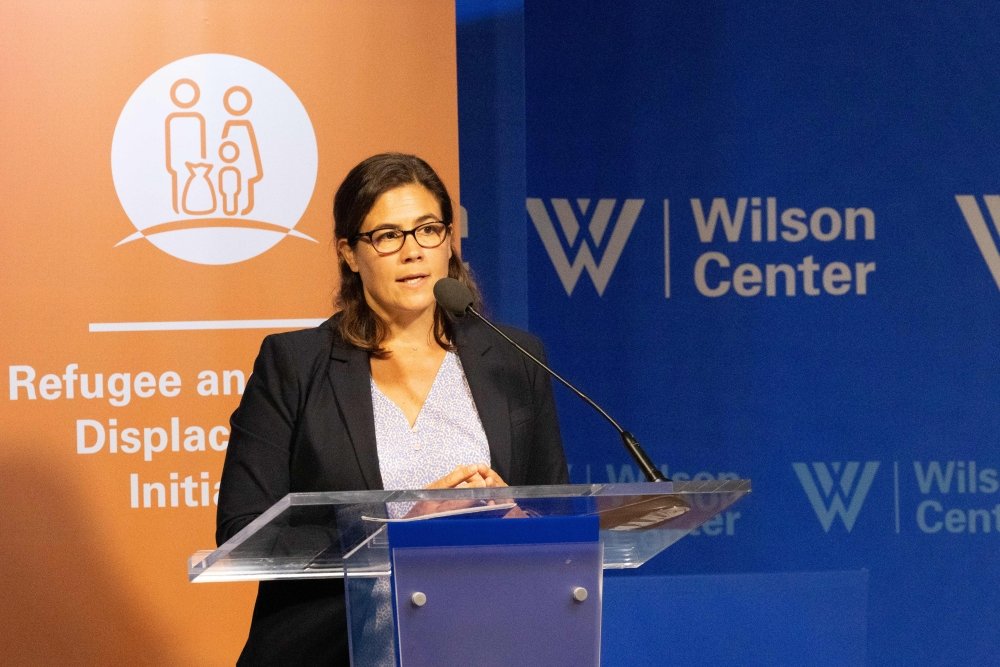
Shaping the Narrative
Following the keynote remarks, panel speakers discussed how refugee resilience and lived experience can shift political discourse and policymaking, the many contributions refugees make to their host countries, and creative solutions for better integration.
Gary Slaiman, Corporate Outreach Advisor for Talent Beyond Boundaries, emphasized that the "essence for changing the narrative” amongst policymakers and stakeholders is to spotlight refugee success stories. He added that “one of the most powerful messages” is to show decisionmakers the example of someone “who has moved to a country of destination and contributes to the GDP, helps economic development, [and] integrates into the workplace.”
Sherzod Odilov, an Associate Client Partner at Korn Ferry Consulting, spoke about his journey as a refugee from Uzbekistan. Odilov noted that when he came to the US alone at 15 years old, his first goal was survival. After that, he attributed four key factors to his successful integration into the US: open-mindedness, English proficiency, involvement in a pre-existing local community, and a mindset focusing on the future. These resilience factors that he learned as a resettled refugee are now critical to his work as an organizational change and culture transformation specialist.
Resilience and adaptability are skills that all refugees can bring to the table, especially for organizations who are uncomfortable or underprepared for changes in their industries. In these settings it becomes increasingly important for organizations to “not just hire talent for the sake of hiring talent, but intentionally think about the talent that you can’t tap into because they’re not on LinkedIn, they’re not on Glassdoor,” said Odilov.
Lourena Gboeah, Program Director for Upwardly Global and Chair of the Board of Directors for Refugee Congress, is a former refugee from Liberia. She emphasized that refugees do not only contribute to host communities economically, but also with their leadership and lived experience. She noted that “equitable policies and welcoming communities only take form when they are built and led by leaders with lived experience.” As an example, Gboeah highlighted the relationship that Refugee Congress has built with the administration, as well as its role in the formation of the US Refugee Advisory Board.
“Equitable policies and welcoming communities only take form when they are built and led by leaders with lived experience.” – Lourena Gboeah
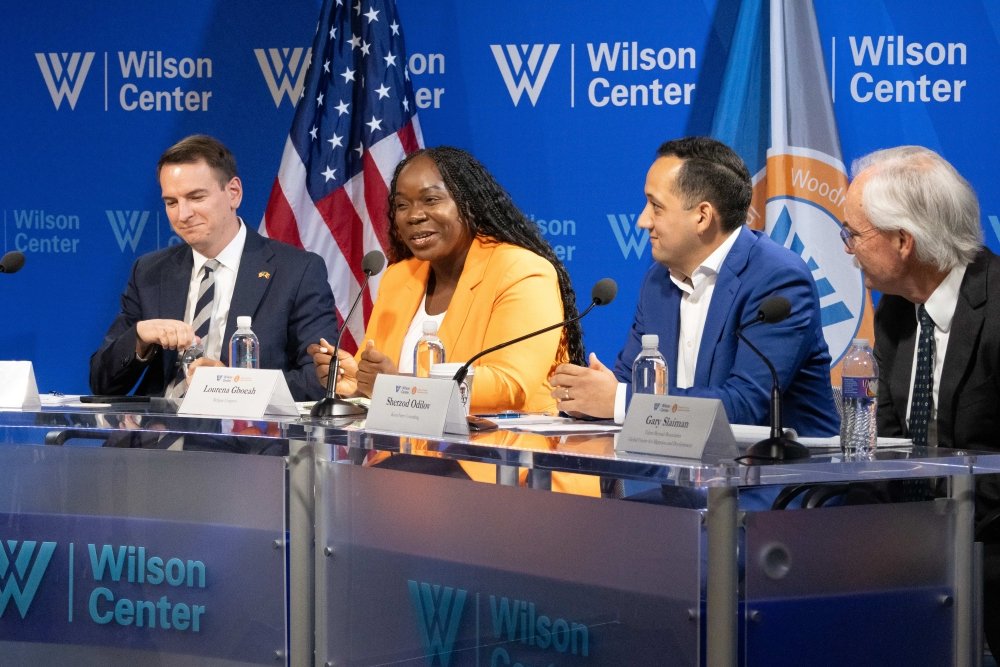
Positive Impact of Refugees
Anton Lungu, Deputy Chief of Mission at the Embassy of the Republic of Moldova to the United States, spoke from the perspective of a host country government. Lungu explained that many Ukrainian refugees come to Moldova as highly educated and skilled. Despite everything they have been through, they contribute to critical sectors such as education and healthcare in Moldova. He emphasized that the Moldovan public celebrates and appreciates their contributions, saying, “they are our doctors, they are our teachers…they help us, they help the elderly, they help families with numerous children.” Lungu describes Moldova as a “small country with a big heart” to explain his country’s high degree of hospitality.
Dr. Tsehaye Teferra, President and CEO of the Ethiopian Community Development Council (ECDC) that he founded in 1983, added that the value of refugee contributions should not be measured by economic contributions alone but also by the diversity and culture that they bring. “The United States is what it is today because of the infusion of cultures from other parts of the world. Refugees, by coming here, have significantly contributed to the diversity. I am a firm believer that diversity is strength,” Teferra articulated. He acknowledged the contributions made by former refugees at a high level within the US government, giving an example of two most recent appointments of people with lived experience of forced displacement as heads of the Office of Refugee Resettlement at the US Department of Health and Human Services Administration.
In February 2024, the US government published a study, which shows that refugees and asylees generated $123.8 billion in net fiscal benefit to the US economy and government budgets over a 15-year period from 2005-2019. With such evidence, the implications for fully developing refugee skills and talents only become greater.
One organization working to maximize the benefits of integrating and developing refugee skills is Talent Beyond Boundaries (TBB), which, as Gary Slaiman explained, works with skilled refugees who are candidates for employment, businesses that hire them, and host country governments to turn refugee skills into pathways for a durable solution. Despite receiving initial skepticism, TBB has found durable solutions for about 2,000 refugees and has worked in Europe, Australia, and is increasing its work in the US. Similar initiatives, such as the US Department of State Welcome Corps program, begin with the proposition that refugees have talents and skills that need to be maximized. By investing in these replicable, sustainable, and innovative efforts to find durable solutions, governments recognize refugees “for their abilities, rather than their status.”
Way Forward
The event concluded with a Q&A session with the audience and key takeaways from the panelists.
The private sector can create more opportunities for refugees and shape narratives, first, by shifting from a credential-based to a skills-based hiring process. Many refugees hold degrees that are not recognized by their host countries. Second, businesses could offer English language training programs to up-skill potential refugee employees who are not yet fluent. By creating these opportunities, companies can better unlock previously untapped refugee potential. These efforts will fill skill gaps across various industries with talent that is adaptable to change.
Partnership with resettlement agencies and local communities is key for refugee integration. Slaiman emphasized that TBB is “totally dependent on partnerships” throughout their process. By starting with a focus on the job at the onset, qualified refugees can generate income and support themselves earlier in the process. At the same time, partner companies and the refugees themselves cannot fill all the gaps for successful integration. Strong partnerships between the resettlement agencies and local community organizations help in coordinating housing needs for refugees navigating local and national legal systems.
To transform a global refugee system dominated by legacy refugee camps and protracted situations into one that honors human dignity and maximizes the potential of refugees, multilateral and multi-tiered approaches involving governments, nongovernmental organizations, private sector, and host communities must be used. The speakers brought a unique perspective to the table, whether it was from government, the private sector, refugee-led organizations, or from lived experience and on-the-ground expertise. The inclusion of all these voices must be a priority for the international effort to unlock, maximize, and celebrate refugee talents.
“Refugees are not asking for a handout, they are only asking for a hand up.” - Lourena Gboeah
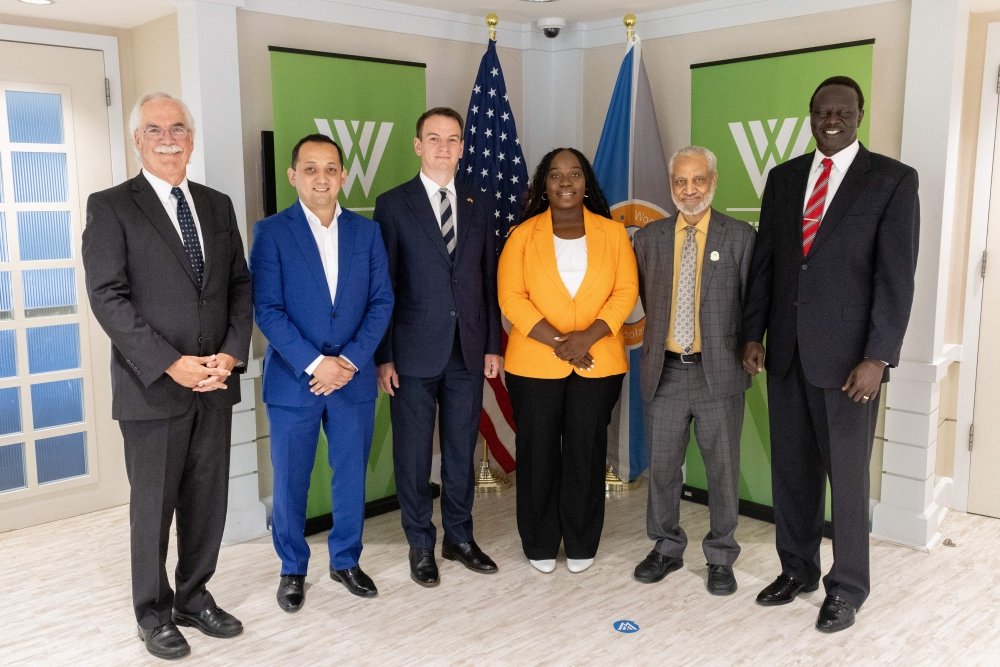
Keynote Speaker
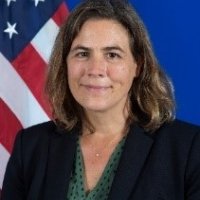
Moderator
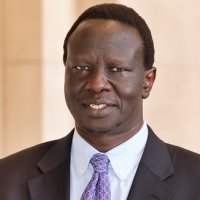
Panelists
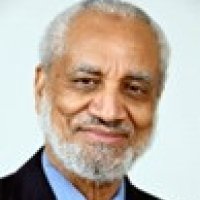
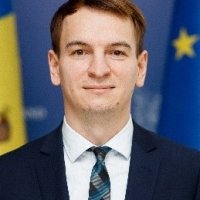
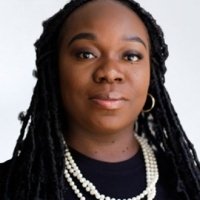
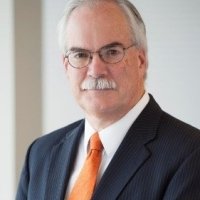
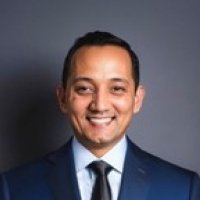
Hosted By

Refugee and Forced Displacement Initiative
The Refugee and Forced Displacement Initiative (RAFDI) provides evidence-based analyses that translate research findings into practice and policy impact. Established in 2022 as a response to an ever-increasing number of people forcibly displaced from their homes by protracted conflicts and persecution, RAFDI aims to expand the space for new perspectives, constructive dialogue and sustainable solutions to inform policies that will improve the future for the displaced people. Read more


Africa Program
The Africa Program works to address the most critical issues facing Africa and US-Africa relations, build mutually beneficial US-Africa relations, and enhance knowledge and understanding about Africa in the United States. The Program achieves its mission through in-depth research and analyses, public discussion, working groups, and briefings that bring together policymakers, practitioners, and subject matter experts to analyze and offer practical options for tackling key challenges in Africa and in US-Africa relations. Read more


Indo-Pacific Program
The Indo-Pacific Program promotes policy debate and intellectual discussions on US interests in the Asia-Pacific as well as political, economic, security, and social issues relating to the world’s most populous and economically dynamic region. Read more


Latin America Program
The Wilson Center’s prestigious Latin America Program provides non-partisan expertise to a broad community of decision makers in the United States and Latin America on critical policy issues facing the Hemisphere. The Program provides insightful and actionable research for policymakers, private sector leaders, journalists, and public intellectuals in the United States and Latin America. To bridge the gap between scholarship and policy action, it fosters new inquiry, sponsors high-level public and private meetings among multiple stakeholders, and explores policy options to improve outcomes for citizens throughout the Americas. Drawing on the Wilson Center’s strength as the nation’s key non-partisan policy forum, the Program serves as a trusted source of analysis and a vital point of contact between the worlds of scholarship and action. Read more


Middle East Program
The Wilson Center’s Middle East Program serves as a crucial resource for the policymaking community and beyond, providing analyses and research that helps inform US foreign policymaking, stimulates public debate, and expands knowledge about issues in the wider Middle East and North Africa (MENA) region. Read more


